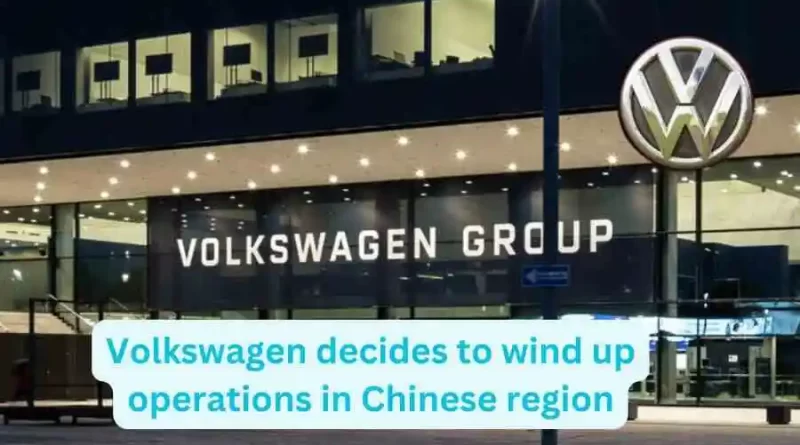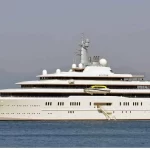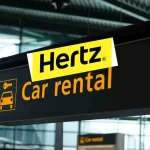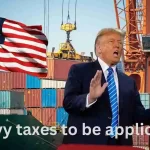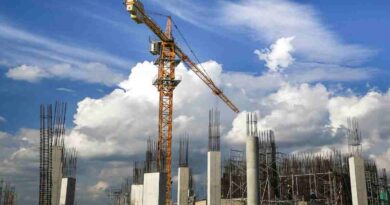Economic reasons behind Volkswagen decision to wind up ‘operations’ in China
Economic factors at play as Volkswagen shuts down operations in China
Putting forward ‘economic reasons’ as the main reason behind Volkswagen’s decision to wind up its operations in the Chinese region of Xinjiang, the company spokesperson said further that “there is no business case for the plant.” VW said it has functioned like a distribution center for finished products from other factories and till the year 2019, it was into the production of combustion vehicles.
The car market scenario has changed since the company began to produce the combustion engines and now there is a huge demand for the electrical ones. So, according to the company spokesperson, Volkswagen needs “to accelerate the transformation of (its) production network” as the pressure from the rival carmakers was huge.
In China alone, the demand for electric vehicles has carved out about 45% of car sales, the International Energy Agency says. Originating in Germany, the manufacturing unit has announced about its extended cooperation with China’s SAIC Motor till 2040. The joint collaboration between Volkswagen and SAIC Motor will be overtaken by Shanghai Motor Vehicle Inspection Certification (SMVIC), a unit of state-owned Shanghai Lingang Development Group, which will also avail of the professional services of its employees, they said.
Human rights are a big factor behind Volkswagen decision
Amidst fading sales prospects, there is also the human rights issue, which has seen the company on the defensive. In Xinjiang, VW will cease its operations as the test tracks in Turpan, Xinjiang, and Anting in Shanghai will also be taken over by the SMVIC. And these steps come under the ambit of the deal while the exact details of it were still unclear. Since 2019, Volkswagen has almost all stopped producing combustible engines, which till that year stood at around 50,000 units per year.
For years, the US administration and other human rights groups have been accusing China of human rights violations against the Uyghur Muslim minority group in Xinjiang. While China describes its internment camps, where it has detained more than 800,000 Uyghurs, as “vocational training centers,” it has closed them since 2019.
Like China as a nation, VW as a company faced reproach regarding human rights violations from some of the leading names in the press. Responding, however, to a write-up where it was written that the audits done were found below par in one of the newspapers, denouncing the company, a VW spokesperson told a leading news channel that “Volkswagen always adheres to the legal requirements in its communications. At no time has there been any deception of investors or the public.”
Before that, the company had responded to violations of basic human rights from many activists around the world and said that there had been an absence of any kind of violation or any other work-related issue. Also, Volkswagen said that forced labor had been found to be absent at the manufacturing units in the facility when concern had been raised by the latter for owning a plant in Xinjiang.
China denies any role of human rights violations
Meanwhile China, more than often, has been in the denial mode on the human rights violations of Uyghurs. While responding to a query regarding the selling up of the Volkswagen-SAIC joint venture, a Chinese foreign ministry spokesperson said, “I want to point out that some political forces have spread too many rumors about Xinjiang internationally, generating a lot of false information.”
Other issues too have contributed to the company’s losses back home.Volkswagen, in a statement, informed that closure of three manufacturing units was on the cards right now as losses were enormous. The company says they have to go ahead with job cuts and manufacturing units’ closure apart to minimize the costs as the loss hovers around 26%. The closures are to happen for the first time in the company’s 87-year time span in the car market around the globe.
Germany’s blue-chip DAX index showed the losses hovering around 0.5% at 1100 GMT for the company.
In 2013, the plant had opened up at Xinjiang and assembling up the parts of Volkswagen’s Santana vehicle was done, but its position in the market faded off due to the enormous job cuts the company underwent. About 200 employees were asked to handover the cars to the dealers in the region that year.
Many stakeholders, including Deka Investment, being among the top 20 and state of Lower Saxony, were relieved after the said decision. The main reason being the cessation of controversies surrounding the plant’s existence at Xinjiang, including lesser monetary impact.
China has always been at loggerheads with other countries over the issue of human rights violations. In 2021, just to counter the statements about the abuses, the country ran a full-fledged campaign against foreign companies who were trying to pull out of the region and Chinese mainland as a whole. Amongst them were fashion brands like Nike, H&M, Adidas, Blueberry, and others. These companies decided to stop sourcing raw materials like cotton from the Xinjian region then, over the issue of abuses.
But it is a fact that many satellite images and leaked documents had shown exactly the same, confirming the reports of torture and forced labor. The Uyghurs have been facing untold human rights abuses at the hands of Beijing, which is the main reason why China has been facing sanctions from many countries, including the U.S., U.K., Canada, and the European Union. Another MNC, Intel too, faced the backlash upon requesting the local suppliers to stop sourcing any raw material from Xinjiang.

